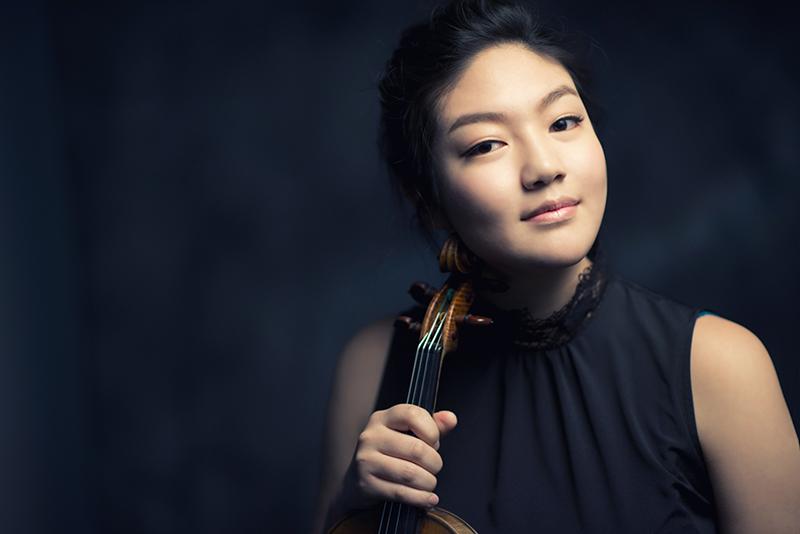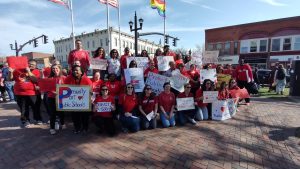On the Record with Jinjoo Cho, new teacher of Violin
Jinjoo Cho, new teacher of violin. Cho has strong ties to the Cleveland music scene as a performer and educator.
September 4, 2015
Jinjoo Cho, a violinist from Seoul, South Korea, is joining the Oberlin Conservatory faculty this fall. At age 26, she was the winner of the International Violin Competition of Indianapolis after previous successes at the Aspen Music Festival and the Alice Schoenfeld International String Competition. She has played with artists including Kent Nagano, Michael Stern, Yoel Levi and James Gaffigan, as well as numerous orchestras. Cho is also known for her community and outreach work and her engagement with various audiences, a vibrant energy that she hopes to bring to Oberlin. Cho sat down with the Review to talk about avant-garde music, community outreach and what her future holds.
Why did you choose to teach at Oberlin?
I live in Cleveland right now, and this is going to be my home base for at least the next two or three years. I did not even know that Oberlin was looking for violin teachers, but the Conservatory asked me if I wanted to teach part-time. I was invited to teach a master class last semester, and I thought it was an amazing opportunity to see Oberlin kids. As close as the [Cleveland Institute of Music] and the Oberlin Conservatory are geographically, there really isn’t much communication between the two institutions. I feel very honored to teach here, actually.
A lot can be read about your engagement in the communication surrounding music and outreach initiatives in different communities. Are these initiatives something you consider a big part of your work?
Honestly, it is something I started very naturally when I was younger. I started doing outreach things when I was in middle school — maybe because I went to a Catholic middle school and high school. But also, CIM has an excellent outreach program, and people would keep asking me to do all these different things. So I do not think it was anything special — it was just part of my life. As I grew into an adult, I found these things very liberating: to play at all these different venues, for example, once in a while. It is really easy to forget the touch — what makes our audience tick — in a way. It is really important to keep that in mind. Of course, it is important to push our boundaries, look for new things and explore our profession deeper and deeper, but at the same time it is very important to keep the balance between what is easily understood amongst our audience and our academic exploration. That is what interests me. I really, truly believe that you can be as avant-garde as you want and still have an interactive and [communicative] language within your music. That is where the spark comes from on stage and in real life.
Ohio seems to be a very interesting part of the U.S. for that kind of exploration. It is a very rural state, after all — definitely more so than some states on the East or West Coast.
Well, honestly, I kind of do these outreach things for myself. I like [it], and it helps me to grow. I would love to say that I am a selfless person and that I do this for the greater good, but I am not. I love it, and it helps me with what I want to do.
You left Seoul at the age of 14. Do you go back there often? Did you ever plan to go back and teach there?
Maybe not teaching, yet. I go there a lot to perform. I am finishing a residency at a hall called Kumho Art Hall in October. It will be the ending of a series of recitals. I am really excited about that. This year I went to Seoul a lot of times — five or six times. After October, I won’t go back until April.
Earlier you said that you plan on staying in Cleveland for the next two or three years. Any plans for what comes after that?
A lot depends on what comes from this community that I have just recently committed to. I am really excited to teach at Oberlin. If this is something I can sustain — the relationship between CIM and Oberlin — and if the feeling is mutual between faculty and administration, I would love to remain a part of both CIM and Oberlin. I say two or three years just because of my personal things that are going on, but there is always a chance that I might stay longer. I don’t know what the future holds.



















